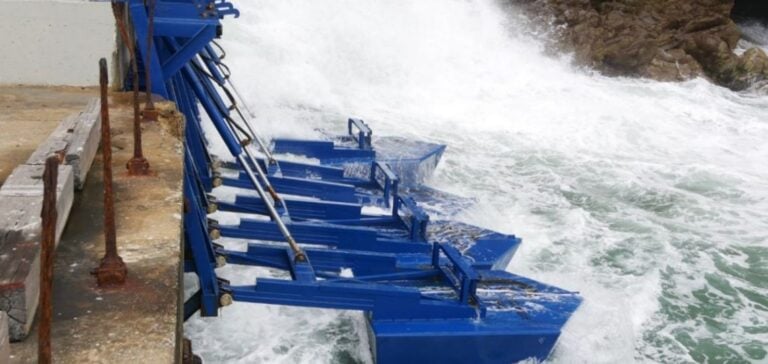The company Eco Wave Power Global AB, specializing in wave energy technologies, has formalized a $3 million fundraising agreement. This initiative, conducted through a securities purchase with a single institutional investor, represents a significant advancement in the renewable energy sector.
Listed on Nasdaq under the symbol “WAVE,” the company clarified that the transaction involves the issuance of 300,000 American Depositary Shares (ADS), each representing eight ordinary shares, at a unit price of $10 per ADS. This operation is being executed with the support of Maxim Group LLC, acting as the exclusive placement agent.
An Ambitious Project in Portugal
The funds raised will be used to support Eco Wave Power’s innovative projects, particularly the installation of its first commercial wave energy power plant in Portugal. This project marks a key milestone for the company, which aims to deploy a technology capable of transforming wave energy into clean, affordable electricity.
The Portuguese installation represents a strategic turning point for the company. By establishing a presence in Europe, Eco Wave Power is leveraging a region favorable to marine energies, benefiting from a supportive regulatory framework and substantial energy potential.
Compliance and Growth Prospects
The operation is part of a prospectus filed with the United States Securities and Exchange Commission (SEC). This document, accessible on the SEC website, ensures the transparency and compliance of the transaction.
Simultaneously, Eco Wave Power plans to intensify efforts to expand its presence in the global market. The success of this fundraising initiative is expected to accelerate project development and strengthen the company’s position among leaders in the wave energy sector.






















